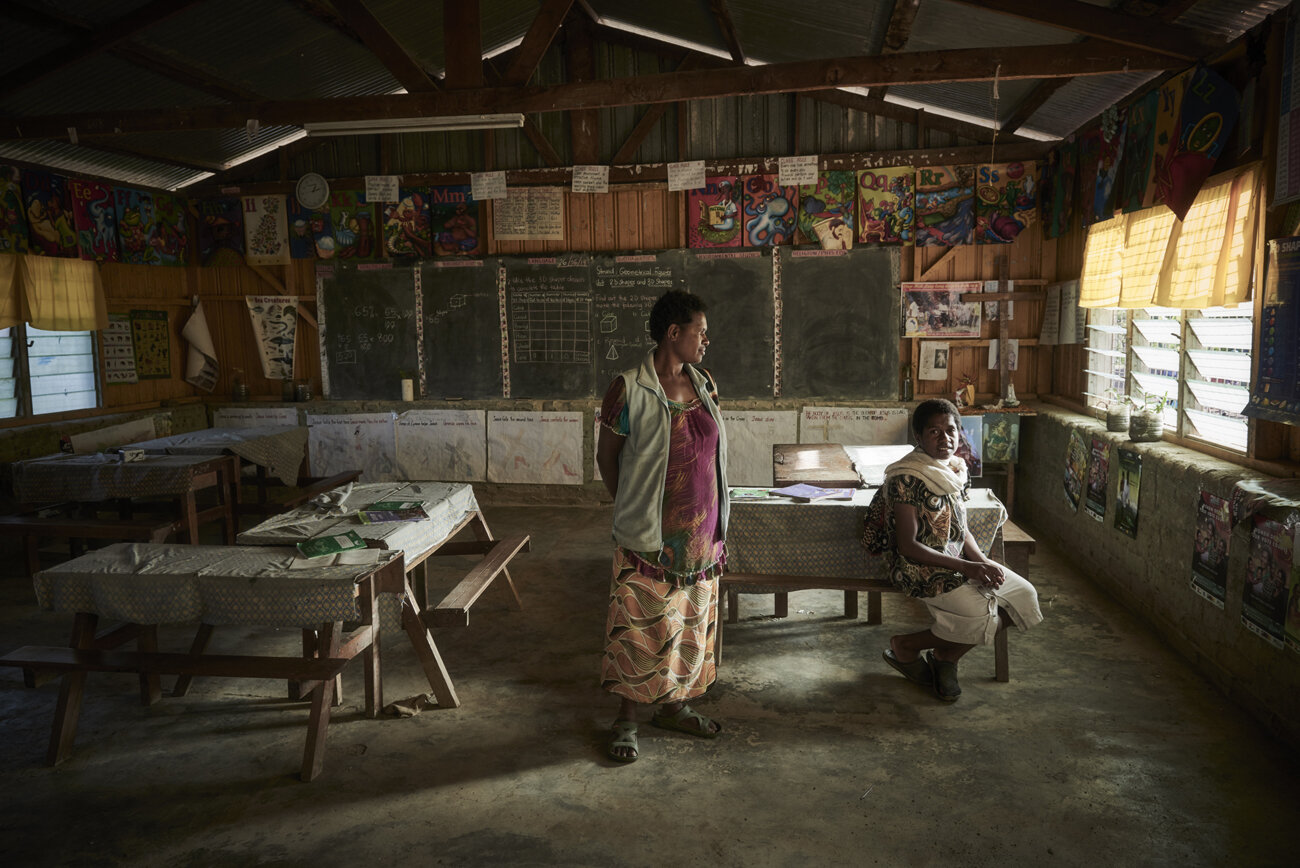
Golgme valley in Chimbu province, Papua New Guinea.
The use of violence for discipline has been endemic in highland Papua New Guinea parenting for generations however families are transforming their behaviours, benefiting surrounding communities and easing tribal tensions through a positive parenting training that UNICEF has implemented. This work looks at how the parenting program has shifted behaviours at home and also in the broader community with the hope that the upcoming generation will no longer turn to violence as default parenting.

Martha Mende, 45, outside her home with her four children, her nieces and nephews.
As a single parent of four children Martha says, “I see a big change in the children. When I talk to them, they listen to me, they respond and they help me. They are kind and polite to me. This makes me happy because I am only one parent and if they weren’t like this it would make me upset and be much harder for me,”

A typical home in the highlands of Goglme, Papua New Guinea.

Bimbi, 70, lives with her daughter Maria Majo, 40, in a remote village in Chimbu, Papua New Guinea.
The two look after Maria's daughter Ellen, 6, and granddaughter (also named) Ellen, 2. Maria started taking care of Ellen (2) when her mother left, and her father, Gaby, took a job in the city. A very rough, dirt road makes the journey home long and difficult, so he only returns for major family events.
“...now that I am more positive with her and spend more time listening and communicating with her, Ellen listens more and will do the household chores before running off to play. Now, if I tell her it is going to rain so she should come home early, she listens and gets home quickly.”

Children play in a hillside field of Goglme, Chimbu, Papua New Guinea.

Wasna, 25, has six children and lives in Goglme, Chimbu.
Wasna used to be a gambler. She used to lose track of time when she was out gambling. Her six children would cook for themselves and do all the chores because she would get home so late. Due to the positive parenting program she says “Now, I have stopped. I am organised and I spend a lot more time with my children… I am so happy that I got the training, but I regret not knowing these things before. I am happy because I have improved myself .” Wasna also used to hit and shout at her children. But after learning that violence could lead to psychological damage in her children, she immediately stopped and started using new ways to communicate with and discipline her children.

Tobia’s grandchildren help her peel potatoes from the garden.
Tobia has six grandchildren that she cares for in her home in the mountainous region of Chimbu, PNG.
“I have all these young kids under my care and I want them to grow up to be good people,” Tobia says. “It is a lot of work and I don’t have a lot of time to even look after my own backyard. My garden has gotten all bushy now…. The kids' mothers are not around so I do what I have to do.”

Barri, 52, pushes his grandson, Benjamin, 3, on the swing.
Barri was the first man to take part in the positive parenting program in Siure, Chimbu. He says the workshops helped him deal with his anger towards the children. “In the sessions, we learnt that when you are shouting at the children it doesn’t really help the child. I have changed from that behaviour and I have made a commitment in the workshop to stop abusing my children by yelling at them, name calling them and hitting them.”

Children from different tribes walking on the road together that divides the two tribes.
The Silku and Kamaneku tribes have opposed one another for generations. The town’s road divides the land between the tribes.
The positive parenting movement in the west is not unfamiliar however is has been for the tribes in Papua New Guinea. What is exciting is that it is not only having an impact on relationships with parent and child but improving relationships between parents as well as between communities. This provides hope and optimism for future generations who like all of us, wish to live in peace.








